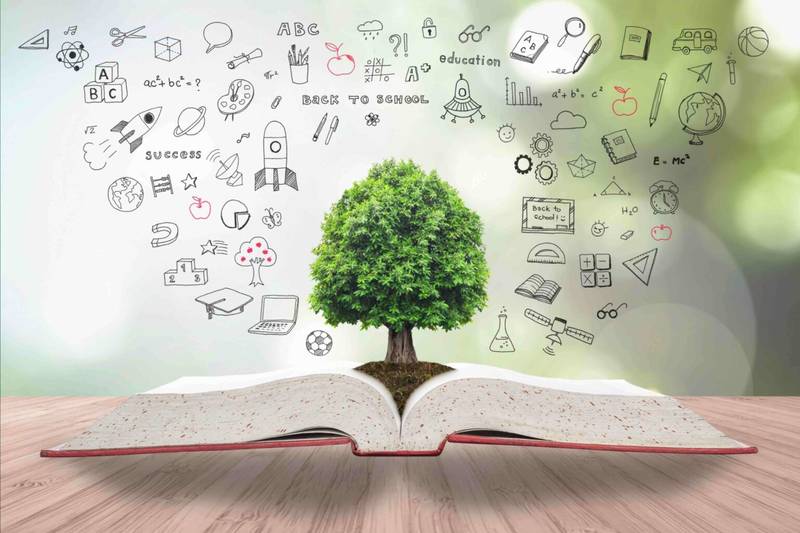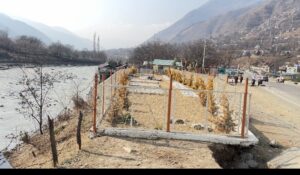The Essence of Education: A Path to Understanding and Beyond

By| Aijaz Ul Haq
Education has always been regarded as the cornerstone of human progress. It is the bridge between ignorance and enlightenment, the foundation of societal growth, and the compass that guides individuals in their quest to understand the purpose of their existence. At its heart, education is not merely about acquiring knowledge; it is about awakening the human spirit, nurturing the mind, and connecting with the deeper truths of life. It empowers us to ask the fundamental questions: Who am I? Why am I here? What is my role in this world?
Yet, in today’s world, this profound essence of education often gets lost in the hustle. Instead of being a path to self-discovery, it has become a relentless pursuit of qualifications, grades, and societal validation. Particularly for the youth, education can sometimes feel like an endless race—a marathon without a finish line. In their attempt to meet expectations, many lose sight of the transformative power of learning.
Education is, in its truest sense, the light that illuminates the darkness of uncertainty. It equips individuals with the tools to not only understand the external world but also to dive deep into the internal realms of thought, emotion, and purpose. Through education, we develop the ability to question, to reason, and to empathize. It transforms raw potential into meaningful action, helping us navigate the complexities of life with clarity and wisdom.
However, the true value of education lies beyond textbooks and classrooms. It is about the cultivation of critical thinking, emotional intelligence, and moral clarity. It teaches us not only what to think but also how to think. It bridges the gap between knowledge and wisdom, enabling us to see the world as interconnected and dynamic, rather than fragmented and static.
But this essence is often overshadowed by the pressures of modern education systems, where success is quantified in grades, degrees, and lucrative careers. In this environment, education risks becoming a means to an end rather than an end in itself.
For many young people, the journey of education is a paradox. It is supposed to liberate them, but it often traps them in a cycle of relentless competition and comparison. The youth, full of dreams and potential, are frequently burdened by societal expectations to achieve more, faster. In this process, they sometimes lose touch with the joy of learning and the purpose it is meant to serve.
Instead of finding themselves, they find anxiety. Instead of self-discovery, they encounter self-doubt. They chase degrees without understanding the knowledge behind them, follow career paths without reflecting on their passions, and strive for success defined by others rather than their own values.
This endless hustle for validation has created a generation that is more informed but less self-aware, more qualified but less fulfilled. The focus has shifted from being educated to simply appearing educated.
Education has also become intertwined with the hustle of survival. In a world driven by competition, many see education as the only ticket to security and success. Families invest their savings, and young people sacrifice their mental health, all to climb a ladder whose top often remains elusive.
This hustle mentality has created a paradox. While education is meant to enrich lives, it often becomes the very source of stress and disconnection. The pressure to succeed, the fear of failure, and the constant need to prove oneself overshadow the beauty of learning.
To restore the true essence of education, we must reimagine it as a journey rather than a destination. Education should not merely prepare individuals for a career; it should prepare them for life. It should instill a sense of purpose, teach resilience, and cultivate curiosity.
Youth must be encouraged to learn for the sake of understanding, not just for achieving. They need spaces to reflect, to question, and to grow—not just intellectually, but emotionally and spiritually. Education must shift from being a race to being a rhythm, from being a burden to being a blessing.
We must remind ourselves that education is not about creating machines that fit into society’s existing molds. It is about fostering human beings who have the courage to break those molds, to think differently, and to contribute meaningfully to the world.
Education is the foundation that connects the essence of human existence. It is the light that guides us in understanding who we are and what we can become. But for it to serve its true purpose, we must strip it of the pressures, the hustle, and the superficiality that obscure its beauty.
We must embrace education as a lifelong journey—a journey of understanding, self-discovery, and purpose. Only then can it truly illuminate our path and help us find meaning in the chaos of existence.
Author: Aijaz Ul Haq “The writer is pursuing a BA in Journalism at the University of Delhi”




